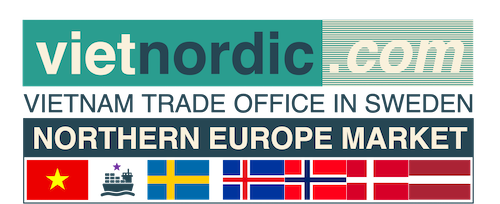Though the green fund market is still in the early stages in Việt Nam, it has begun to attract attention and promises to become an important part of the country’s green financial system.
In 2017 the Ho Chi Minh City Stock Exchange (HoSE) officially introduced the Vietnam Sustainability Index (VNSI), with the aim of determining sustainable development standards for listed companies and supporting institutional and individual investors in identifying businesses with green characteristics for investment.
However, the investment fund market in Việt Nam currently does not have specialised funds that track the Vietnam Sustainability Index (VNSI index) or funds that focus entirely on green investment.
The United Vietnam ESG Equity Fund (UVEEF) of UOB Asset Management Vietnam (UOBAM Vietnam) is currently the first and only open-ended fund in the Vietnamese financial market that applies ESG standards to select investment stocks.
The fund, which was established in November 2022, selects stocks based on high ESG practice standards according to its own rating, along with fundamental factors and good business prospects. The fund does not invest in stocks in some industries, such as coal mining or coal-fired power, which have negative impacts on the environment.
Director of UOBAM Vietnam’s ESG division that manages the UVEEF, Trương Minh Hùng, said as of April 2024, the net asset value of the UVEEF increased five and half times compared to the time of establishment in November 2022.
In 2023 – a year with many challenges for the economy as well as the Vietnamese stock market – the investment performance of the UVEEF was quite good compared to the market. The net asset value per fund certificate surged by 17.7 per cent, 5.5 per cent higher than the increase of the VN-Index. This growth rate put it in the top ten stock funds with impressive achievements in 2023, according to statistics from the open-ended fund distribution platform Fmarket. Hùng added that this is a positive signal that Vietnamese investors are increasingly paying attention to ESG factors and are interested in sustainable investment products.
A survey by Vietnam Plus also reports that stocks in the VNSI basket also appeared frequently in the investment portfolios of foreign funds investing in the Vietnamese stock market. It shows that the common point in the investment taste of the funds is gradually moving towards sustainable development, which will open up prospects for the development of specialised green investment funds in the future.
According to Hùng, though sustainable investment capital in Việt Nam currently does not develop as strongly as in other countries, Việt Nam has great potential to attract capital, thanks to a number of important factors.
Firstly, Hùng said, the Vietnamese Government has made a strong commitment to promoting green transformation and investing in renewable energy, with the goal of achieving net zero emissions by 2050.
Secondly, awareness and interest in sustainable investment among consumers and investors are increasing, especially as Vietnamese businesses must meet high ESG standards set by international importers and markets.
In addition, Việt Nam has received financial commitments from international organisations, such as the Just Energy Transition Partnership (JETP) agreement with the G7 that will finance US$15.8 billion to support the transition to a green economy and reduce greenhouse gas emissions.
Experts say that although green funds in Việt Nam have many favourable factors for growth, it is necessary for the domestic business community to participate in implementing ESG strategies and green growth goals to help the funds develop and promote their role as a driver of green capital.
According to representatives of UOB Vietnam, the main challenge when investing in ESG in the Vietnamese market is that many companies in the stock market are not fully aware of the importance of applying good ESG practices in business operations, so they have not allocated resources properly.
This results in limited information and data on ESG published by companies. Currently, companies are still not open in sharing information related to ESG, making it difficult to collect the necessary information.
Moreover, Việt Nam still lacks independent assessment organisations to ensure the transparency and reliability of ESG reports. — VNS

